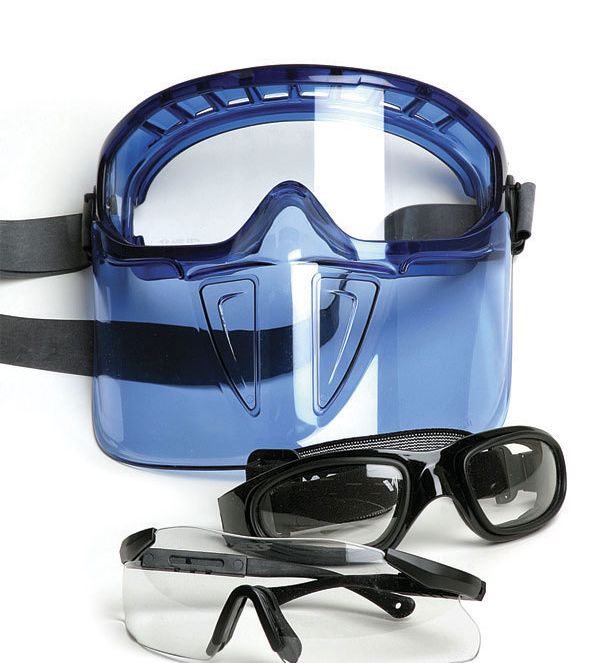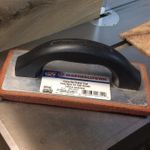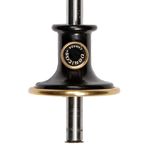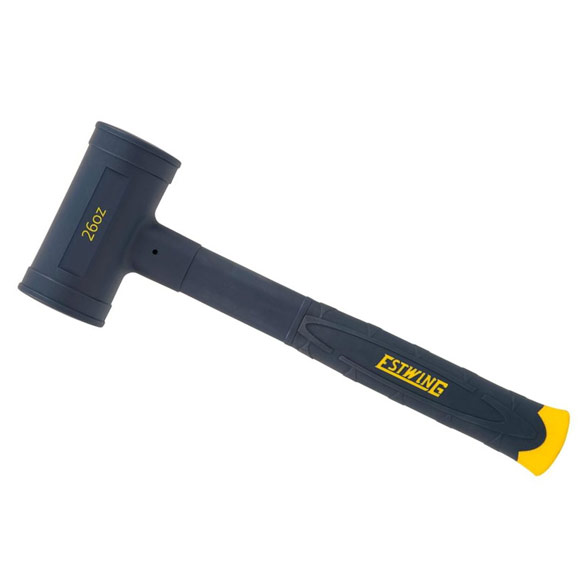A New Look at Eye Protection
Comfortable glasses, goggles, and face shields leave you no excuse
Synopsis: There’s really no good excuse for avoiding eye protection in the shop, especially considering the new, comfortable safety glasses, goggles, and face shields on the market today. Contributing editor Steve Scott looks at eye protection and gives an overview of the range of options out there for woodworkers, whether you are looking for prescription safety glasses, top-of-the-line goggles, down-and-dirty glasses, or a high-tech face shield.
As beautiful as it might look to you, a woodshop is an unfriendly environment for your eyes. Sanders kick up clouds of irritating dust. The tablesaw throws sharp chips, while small workpieces can burst into flying shards at the miter saw. The lathe peppers its user with wood chips, and grinders throw sparks and abrasive fragments. Hand work also presents dangers: A chisel and mallet can launch chips like little missiles. Less likely perhaps, but just as dangerous, is a caustic splash from a jostled container of solvent or finish.
According to government estimates, hospitals in 2004 treated about 15,000 eye injuries from tools found in most woodshops. Many of these injuries could have been avoided if the victim had worn an inexpensive set of safety glasses or goggles.
“These are not high-ticket items, compared to saving your sight,” said Dr. Larry Jackson, an epidemiologist who studies workplace injuries at the National Institute for Occupational Safety and Health.
Jackson, who helped develop U.S. industry standards for safety glasses, recommends that every woodshop be equipped with all three basic types of safety eyewear—glasses, goggles, and face shields. Woodworkers should use some type of eye protection at all times in the shop, he says.
No doubt some woodworkers will balk at that suggestion—it’s hard to believe that your eyesight is threatened when you’re taking shavings with a block plane or laying out dovetails with a marking gauge and a bevel. But it’s also hard to argue against a sure way of keeping your eyes safe: making a rigorous habit of wearing the right protective gear. The argument tilts further when you consider how easy it is to find comfortable and effective eye protection.
Every woodworker will strike his or her own balance between convenience and eye safety. Three Fine Woodworking editors recently sized up a broad selection of glasses and goggles, looking for models that offer both protection and comfort. Here’s an informal overview of the eyewear that’s available with some tips on what to look for.
Safety glasses are a must
Any protective eyewear—glasses or goggles—should meet the American National Safety Institute standard known as Z87.1-2003. This means that the lenses, typically made of tough polycarbonate, won’t shatter and the frames won’t break when smacked by a 1⁄4-in. BB moving at 150 ft. per second. They must also offer generous side protection to keep dust and flying objects out of the corners of your eyes. The lenses, frames, and packaging should all be stamped with a Z87+ to indicate that they meet this safety standard.
From Fine Woodworking #187
For the full article, download the PDF below:
Fine Woodworking Recommended Products

Grout float

Veritas Wheel Marking Gauge

Estwing Dead-Blow Mallet




















Comments
This article was very helpful when first published. The concepts covered are still valid but product availability in the marketplace has changed and if would be nice to have a new related article on this subject that reviews the eye protection options available today (2017). I ended up buying Willson OTG goggles as a result of reading this article, and today they are nowhere to be found. A review of available products would really help as I search for a replacement google that will work over my glasses.
Log in or create an account to post a comment.
Sign up Log in